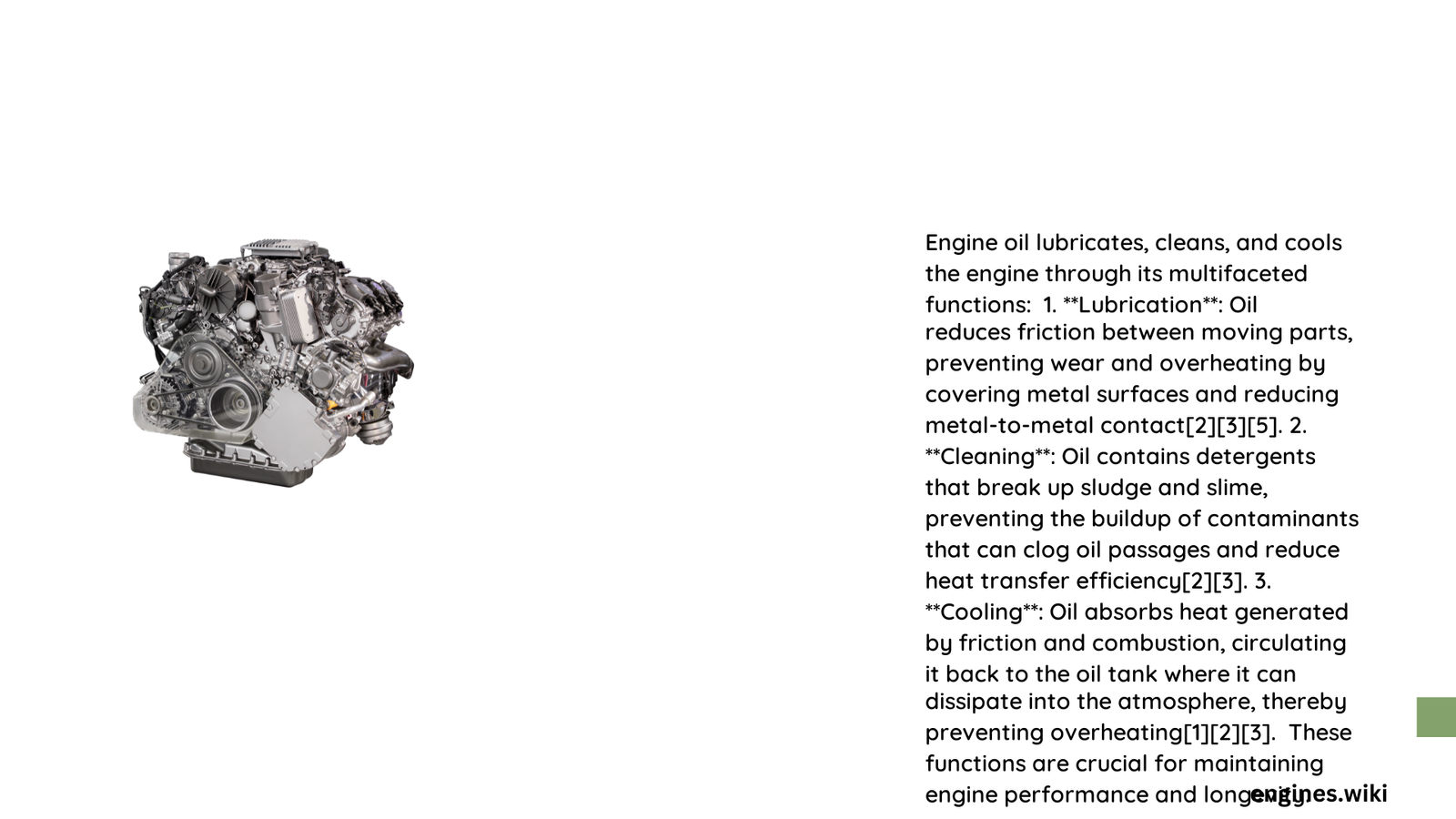Engine oil serves as a multifunctional fluid that performs three critical tasks: lubrication, cleaning, and cooling. By creating a protective film between moving metal components, suspending contaminants, and dissipating heat, engine oil ensures optimal performance, reduces wear, and prevents potential mechanical failures across various operating conditions.
What Makes Engine Oil Essential for Vehicle Performance?
How Does Engine Oil Provide Lubrication?
Engine oil creates a microscopic protective film between moving metal components, reducing friction and preventing direct metal-to-metal contact. This lubrication process involves several key mechanisms:
- Boundary Lubrication: Provides protection during startup and low-speed operations
- Hydrodynamic Lubrication: Maintains a consistent oil film at higher engine speeds
- Elastohydrodynamic Lubrication: Handles extreme pressure in components like bearings and gears
Viscosity Characteristics
| Viscosity Grade | Temperature Performance | Typical Applications |
|---|---|---|
| 0W-20 | Excellent cold start | Modern compact vehicles |
| 5W-30 | Balanced performance | Most passenger vehicles |
| 10W-40 | High-temperature stability | Older or high-mileage engines |
What Cleaning Functions Does Engine Oil Perform?
Engine oil contains sophisticated additive packages designed to maintain internal engine cleanliness:
- Detergent Additives
- Neutralize acidic combustion byproducts
- Prevent corrosion on critical engine surfaces
-
Dissolve existing deposits and prevent new formations
-
Dispersant Technologies
- Suspend microscopic contaminants
- Prevent sludge and carbon particle accumulation
- Facilitate efficient filtration of suspended particles
How Does Engine Oil Contribute to Cooling?
While the primary cooling system involves liquid coolant, engine oil plays a significant role in thermal management:
- Absorbs heat generated during combustion
- Transfers thermal energy away from critical components
- Helps maintain consistent operating temperatures
- Prevents localized overheating in high-friction areas
What Factors Influence Oil Performance?
Several critical factors determine engine oil’s effectiveness:
- Chemical Composition: Base oil type (mineral, synthetic, synthetic blend)
- Additive Packages: Specific performance-enhancing chemicals
- Operating Environment: Temperature range, driving conditions
- Engine Design: Tolerances, materials, intended performance
Recommended Maintenance Strategies
| Maintenance Action | Frequency | Purpose |
|---|---|---|
| Oil Change | Every 5,000-7,500 miles | Refresh lubricating properties |
| Filter Replacement | Concurrent with oil change | Remove accumulated contaminants |
| Oil Level Check | Monthly | Ensure adequate lubrication |
Advanced Considerations
Modern engine oils incorporate nanotechnology and advanced chemical engineering to:
– Reduce friction more effectively
– Improve fuel efficiency
– Extend component lifespan
– Meet increasingly stringent environmental regulations
Conclusion

Understanding the multifaceted role of engine oil empowers vehicle owners to make informed maintenance decisions, ultimately protecting their investment and ensuring optimal performance.
